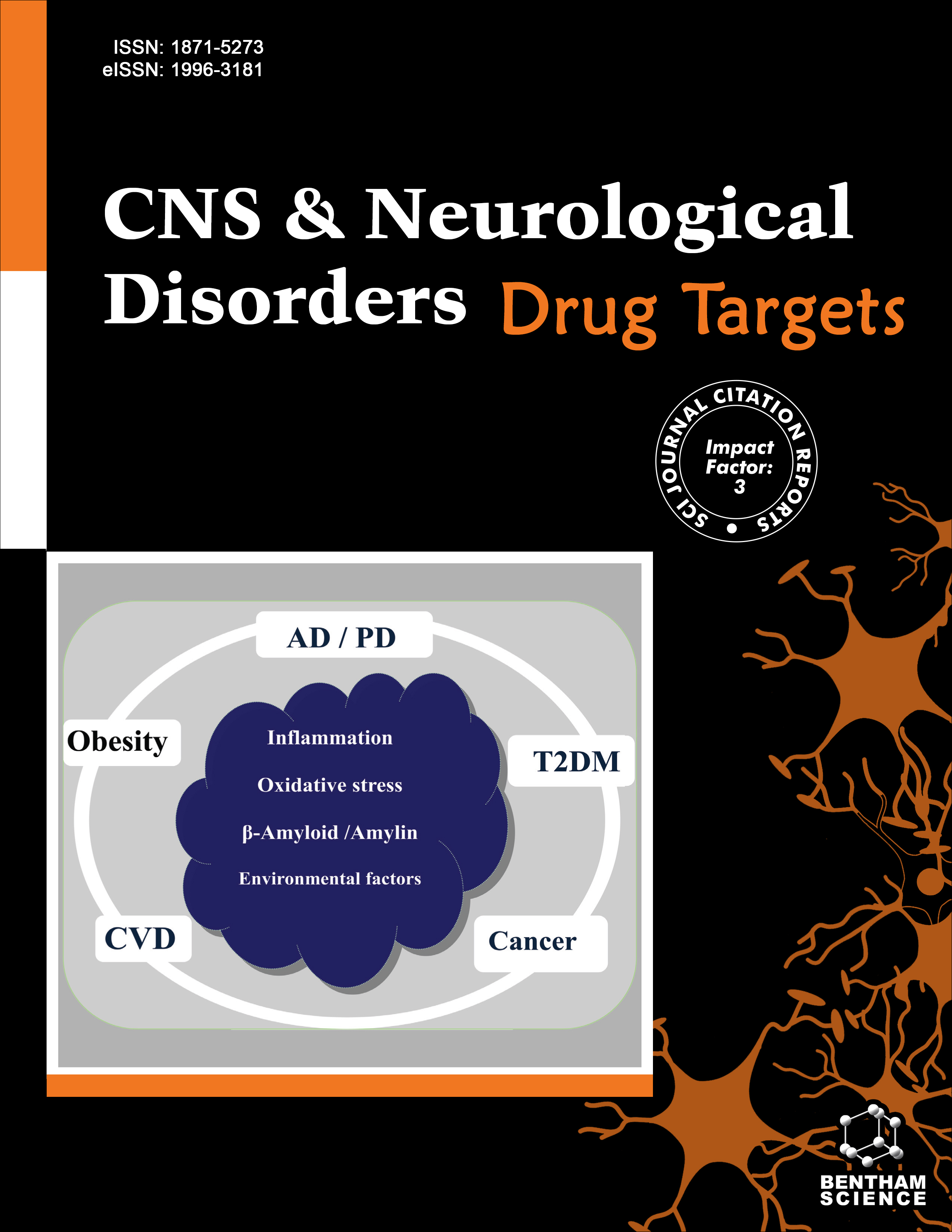-
oa Management of Impulse Control Disorders with Subthalamic Nucleus Deep Brain Stimulation in Parkinson’s Disease
- Source: CNS & Neurological Disorders - Drug Targets, Volume 19, Issue 8, Oct 2020, p. 611 - 617
-
- 01 Oct 2020
Abstract
Impulse Control Disorders (ICDs) and related disorders are common side effects of dopaminergic treatment in Parkinson’s Disease (PD) and are associated with negative effects on mental and physical health, quality of life and interpersonal relationships. Current management options are limited, as a reduction of dopaminergic medication often leads to worsening of motor symptoms or dopamine agonist withdrawal syndrome. The aim of this review was to investigate if ICDs improve, worsen, or remain stable after Subthalamic Nucleus Deep Brain Stimulation (STN-DBS). We reviewed retrospective, prospective and randomized-controlled studies published between 2000 and 2019 examining the effect of STN-DBS on one or more ICDs. The number of participants, time of follow-up, methods used to measure ICDs, type of ICDs, the incidence of ICDs before STN-DBS, the incidence of improvement (remission or reduction) of ICDs after STN-DBS, the incidence of de novo ICDs after STN-DBS, stimulation parameters, lead position, change in motor score and change in medication are reported for each study. Available studies suggest that ICDs improve after STN-DBS in most patients and that persisting new-onset ICDs induced by STN-DBS are rare. However, more randomized-controlled studies are needed to confirm the findings and to further investigate the underlying mechanisms.


